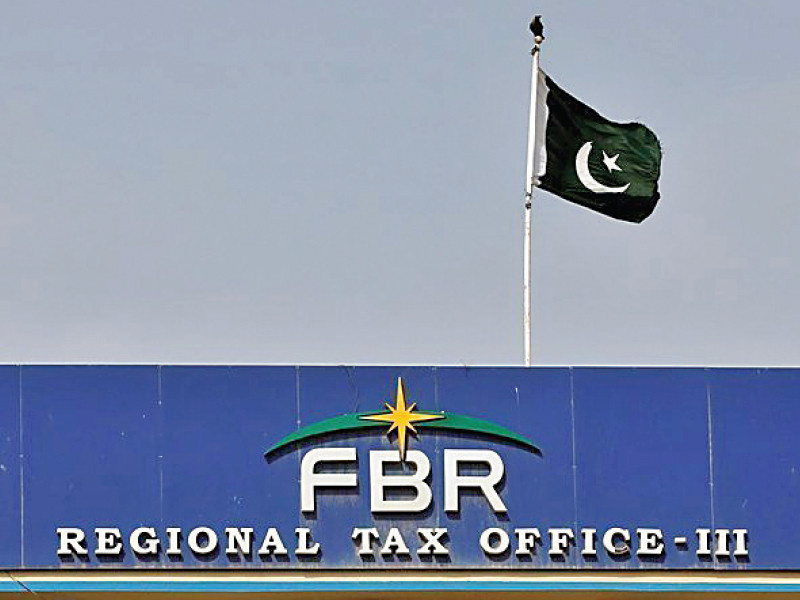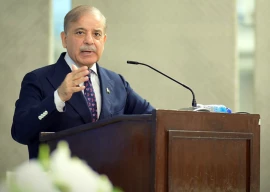
As the government missed the annual tax target by a margin of Rs110 billion, Finance Minister Muhammad Aurangzeb on Sunday defended the income tax exemption that he gave on sale of properties by Pakistan’s all serving and retired civil and military government employees.
The coalition government has given the new income tax exemption despite the Federal Board of Revenue’s (FBR) tax-to-GDP ratio remaining at 8.8% during the just ended fiscal year. The FBR collected Rs9.305 trillion during the fiscal year 2023-24, which ended on Sunday.
The FBR’s annual collection fell short of the goal by Rs110 billion, mainly due to import compression and poor sales tax collection. The FBR missed the sales tax, the custom duties and the federal excise duty (FED) collection targets. But it surpassed the income tax collection target by Rs643 billion.
In his first press conference after the approval of the new budget, the finance minister twice insisted that “the government has not given new exemptions, but only extended existing ones”.
However, the existing exemption was only meant for the families of the martyred civilians and armed forces employees, which is now extended to all people, who served in the government or the armed forces since 1947.
The National Assembly approved on Friday that no withholding tax will be charged on the sale or transfer of immovable property by “a war-wounded person while in service of Pakistan Armed Forces or Federal or Provincial Government or an ex-serviceman and serving personnel of armed forces or ex-employees or serving personnel of Federal and Provincial Government”.
A senior FBR official told The Express Tribune on condition of anonymity that the impact of the new income tax exemption would run into billions of rupees.
Aurangzeb was questioned by a senior journalist whether he had introduced a new ideology where the tax exemptions were given to those who were on the side of the government but the burden was put on those who did not have a voice.
While responding to another question, the finance minister said that it was the condition of the International Monetary Fund (IMF) to end tax exemptions, which stood at Rs3.9 trillion before the approval of the budget. He added that the government had still protected some of those exemptions.
The finance minister expressed the hope that a staff level agreement with the IMF can be reached in July but did not give a firm date. “We are moving in the right direction on the prior actions and the structural benchmarks” for the new Extended Fund Facility (EFF),” said Aurangzeb. He added that the size of the Fund programme had not been finalised yet but its duration would be three or more years.
The minister stated that the IMF programme would contribute to macroeconomic stability, and stressed that his and Prime Minister Shehbaz harif’s hopes were that the upcoming IMF programme would be the country’s last.
Many believe that the budget of the fiscal year 2024-25 budget, which take effect on Monday (today), would not lead the country to economic stability and prosperity. President Asif Ali Zardari on Sunday gave assent to the government’s tax-heavy Finance Bill 2024 for the new fiscal year.
The finance minister emphasised the importance of macroeconomic stability, especially considering Pakistan’s reliance on loans. “If we cannot repatriate an investor’s dividends, it will make asking for additional investment difficult,” he said.
FBR collection
For the just-ended fiscal year 2023-24, the government had given Rs9.415 trillion tax target and took many measures, including increasing the tax burden of the salaried class. However, according to the provisional results, the FBR collected Rs9.305 trillion –falling short of the target by Rs110 billion.
But its collection was Rs2.1 trillion or 29.9% higher than the preceding fiscal year. Pakistan had budgeted Rs9.4 trillion tax target and the FBR collected Rs9.3 trillion — a difference, the minister said, was “hardly anything”. “This shows a growth in tax revenue by 30% year on year,” he added.
For the new fiscal year, the government has given Rs12.970 trillion tax target to the FBR, which would now require a 39.4% increase in collection.
Income tax collection amounted to Rs4.53 trillion during the just-ended fiscal year, achieving 38.5% growth rate. The collection was RS1.25 trillion higher than the preceding year and also Rs643 billion more than the target. Higher banking profits and higher contributions by the salaried class played a pivotal role in the income tax collection.
Sales tax collection reached over Rs3.1 trillion, higher by Rs505 billion or 20% compared to the previous year. But it was far lower than the prevailing inflation rate. The sales tax collection was Rs509 billion less than the FBR’s annual target.
The FBR collected Rs576 billion in FED, which was Rs206 billion or 56% higher than the previous fiscal year. The FED collection also fell off the target by Rs24 billion, as higher duties on beverages and cigarettes had adversely affected the production and sales of these sectors.
The collection on account of custom duties ended at Rs1.104 trillion –up by Rs173 billion or 18.5%. However, the collection was significantly lower than the target, which was compensated by higher collection in the domestic taxes. The custom duties collection was Rs220 billion short of the target.
Aurangzeb emphasised the need for bringing retailers into the tax net and regretted that the 2022 attempt by then finance minister Miftah Ismail to bring retailers into the tax net should not have been disrupted.
The then PML-N senior leader Maryam Nawaz Sharif had asked Miftah Ismail to stop imposing taxes on the retailers. “When Miftah put that forward it should have been implemented into law,” Aurangzeb said, adding that 42,000 retailers had registered with the “Tajir Dost” registration.
The government has now imposed up to 2.5% withholding tax on the supplies made to the retailers to collect Rs95 billion in this new fiscal year.
Responding to the questions about heavy taxation on the salaried class, the finance minister admitted that the people were anxious about the additional taxes. “I sympathise, but to redress their concerns, we are doing whatever we can in terms of the process,” he said.
The minister said that the National Fiscal Pact with the provinces had to be signed to transfer some responsibilities, terming it “critical” for the country’s sustainability. “Right now, we have started talking with provinces about revenue and expenses and how to carry them forward to make the country sustainable,” Aurangzeb said.

1731914690-0/trump-(26)1731914690-0-405x300.webp)









1731929357-0/Express-Tribune-(6)1731929357-0-270x192.webp)






COMMENTS
Comments are moderated and generally will be posted if they are on-topic and not abusive.
For more information, please see our Comments FAQ